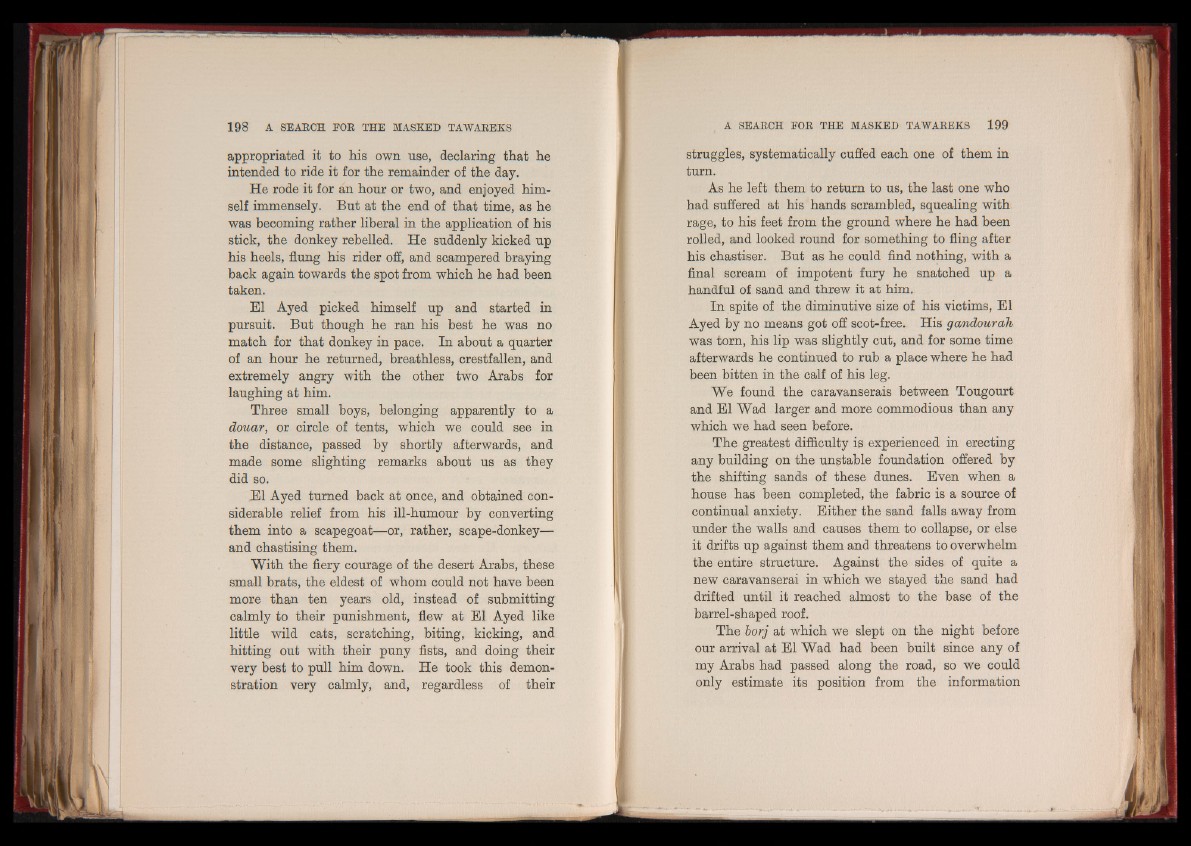
appropriated it to his own use, declaring that he
intended to ride it for the remainder of the day.
He rode it for an hour or two, and enjoyed himself
immensely. But at the end of that time, as he
was becoming rather liberal in the application of his
stick, the donkey rebelled. He suddenly kicked up
his heels, flung his rider off, and scampered braying
back again towards the spot from which he had been
taken.
El Ayed picked himself up and started in
pursuit. But though he ran his best he was no
match for that donkey in pace. In about a quarter
of an hour he returned, breathless, crestfallen, and
extremely angry with the other two Arabs for
laughing at him.
Three small boys, belonging apparently to a
douar, or circle of tents, which we could see in
the distance, passed by shortly afterwards, and
made some slighting remarks about us as they
did so.
El Ayed turned back at once, and obtained considerable
relief from his ill-humour by converting
them into a scapegoat—or, rather, scape-donkey—
and chastising them.
With the fiery courage of the desert Arabs, these
small brats, the eldest of whom could not have been
more than ten years old, instead of submitting
calmly to their punishment, flew at El Ayed like
little wild cats, scratching, biting, kicking, and
hitting out with their puny fists, and doing their
very best to pull him down. He took this demonstration
very calmly, and, regardless of their
struggles, systematically cuffed each one of them in
turn. As he left them to return to us, the last one who
had suffered at his hands scrambled, squealing with
rage, to his feet from the ground where he had been
rolled, and looked round for something to fling after
his chastiser. But as he could find nothing, with a
final scream of impotent fury he snatched up a
handful of sand and threw it at him.
In spite of the diminutive size of his victims, El
Ayed by no means got off scot-free. His gandourah
was torn, his lip was slightly cut, and for some time
afterwards he continued to rub a place where he had
been bitten in the calf of his leg.
We found the caravanserais between Tougourt
and El Wad larger and more commodious than any
which wre had seen before.
The greatest difficulty is experienced in erecting
any building on the unstable foundation offered by
the shifting sands of these dunes. Even when a
house has been completed, the fabric is a source of
continual anxiety. Either the sand falls away from
under the walls and causes them to collapse, or else
it drifts up against them and threatens to overwhelm
the entire structure. Against the sides of quite a
new caravanserai in which we stayed the sand had
drifted until it reached almost to the base of the
barrel-shaped roof.
The borj at which we slept on the night before
our arrival at El Wad had been built since any of
my Arabs had passed along the road, so we could
only estimate its position from the information